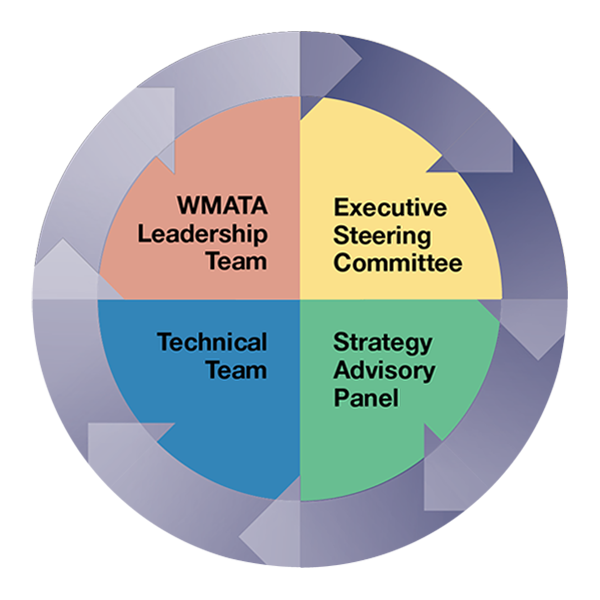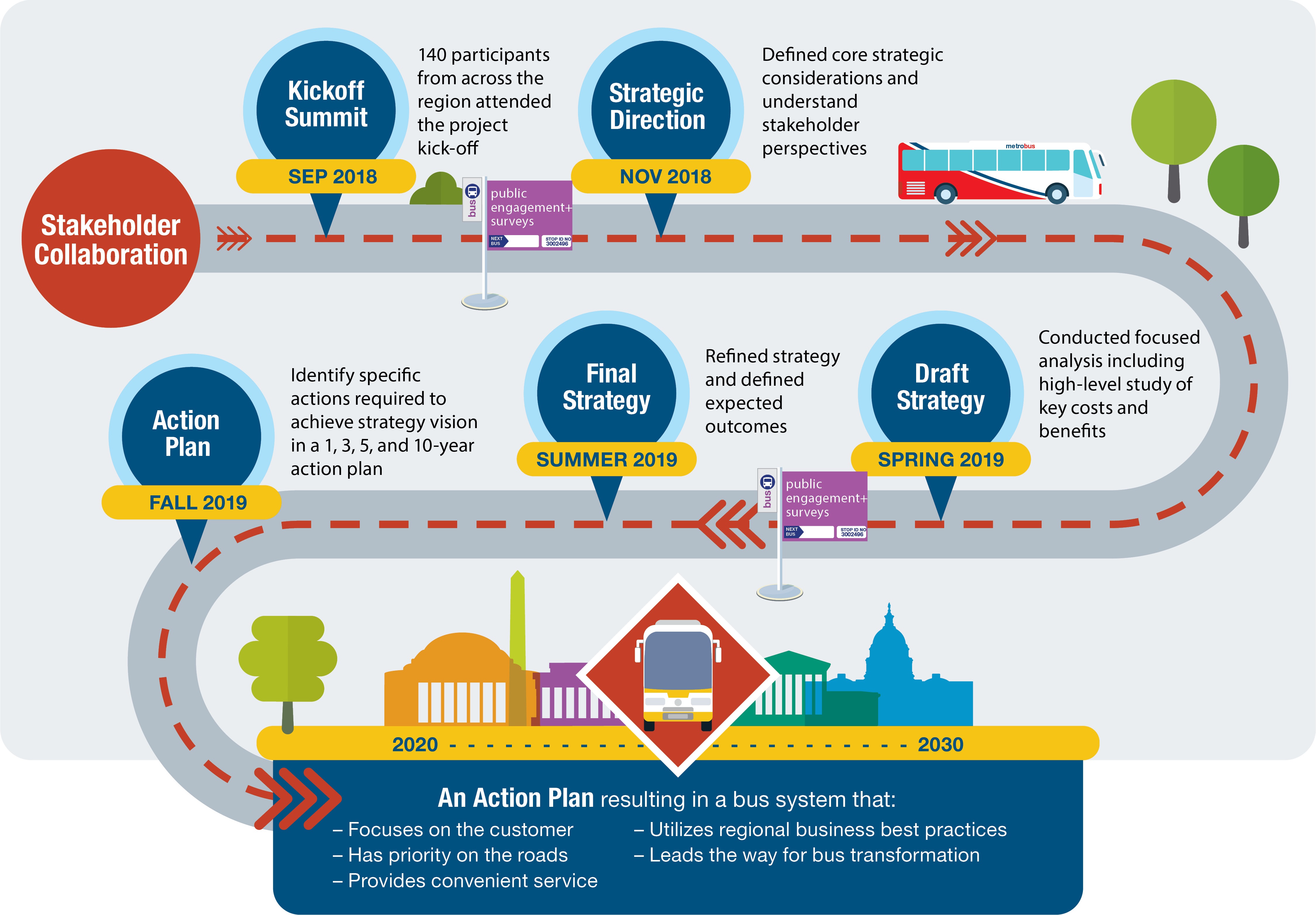Find out more about what riders and stakeholders have told us about the bus system as part of the Bus Transformation Project.
What is the Bus Transformation Project?
The Bus Transformation Project developed a regional Strategy and Action Plan that focus on improving customer experience, connecting the region through better bus service, and fostering collaboration across transit and roadway agencies.
Developed and shaped by a broad range of stakeholders and the public from across the region, the Strategy recommends concrete actions to transform existing bus services into a truly integrated, accessible regional bus network that is part of the larger regional mobility system. The Action Plan highlights the tactical activities required to achieve the changes envisioned for the region’s bus system.
1.
Provide better service and a better customer experience for all bus riders
2.
Identify the best role for bus service amidst rapidly changing technologies and travel preferences
3.
Increase efficiency to provide better results for customers despite limited resources
This study gathered input from people across the region which was used to recommend changes to the bus system. From this feedback, complemented by extensive research and analysis, a Strategy has been produced - with a bold, new vision and a series of recommendation to guide the future of bus in the region. These recommendations that are meant to make bus more reliable, frequent, affordable, and coordinated.
Vision, Goals, and Objectives
Vision
Bus will be the mode of choice on the region’s roads by 2030, serving as the backbone of a strong and inclusive regional mobility system.
Goals and Objectives
FAQs
You can follow and like our project Facebook page to get any future updates.
Project Committees and Advisors
This project is a collaborative, region wide effort. Participation from all of the local agencies who provide bus service, transportation professionals, community-based organizations and agencies, workers, and the business community are all critical to the project’s success. All of their perspectives will be considered in developing the roadmap with recommendations to provide better local bus service.
In addition to engagement with the public, the project team will receive input and direction from four groups of stakeholders throughout the course of the project. Each group has a slightly different role.
Regional stakeholders will work together to identify ways to make local bus a better transportation choice, and to create a roadmap to get there.
The project’s Executive Steering Committee (ESC) provides leadership that informs the study’s approach and recommendations. The ESC includes prominent leaders from throughout the region, and plays an important role in ensuring transparency, independence, and consideration of the needs of all the region’s bus service providers.
The project’s Strategy Advisory Panel (SAP) is an important group of stakeholders representing a variety of regional perspectives whose role is to provide insights into issues related to bus service in the region. The SAP also provides guidance on project goals and draft strategies, based on their areas of expertise. SAP members hold leadership positions in a variety of local and state governments, community-based organizations, businesses and business groups, minority and disability groups, labor organizations, think tanks, the education community, and others critical areas.
Technical Team
The project’s Technical Team (TT) includes staff who deal directly with the provision of bus service throughout the region and have a deep understanding of the operational, financial, governance, workforce, and other components of bus service provision. The TT will include WMATA staff as well as staff from other agencies that provide bus service in the region. The TT members will review and provide input on technical plans and documents to ensure their feasibility and recommend adjustments if necessary.
WMATA Leadership Team
The Leadership Team includes the WMATA General Manager and other key executives and directors in the agency. LT members are responsible for gaining input from decision makers and implementers throughout WMATA to ensure that the project addresses all necessary areas of the organization and is vetted for feasibility based on knowledge of existing conditions and constraints.

Hover over or click each section of the diagram to learn more.
Timeline

